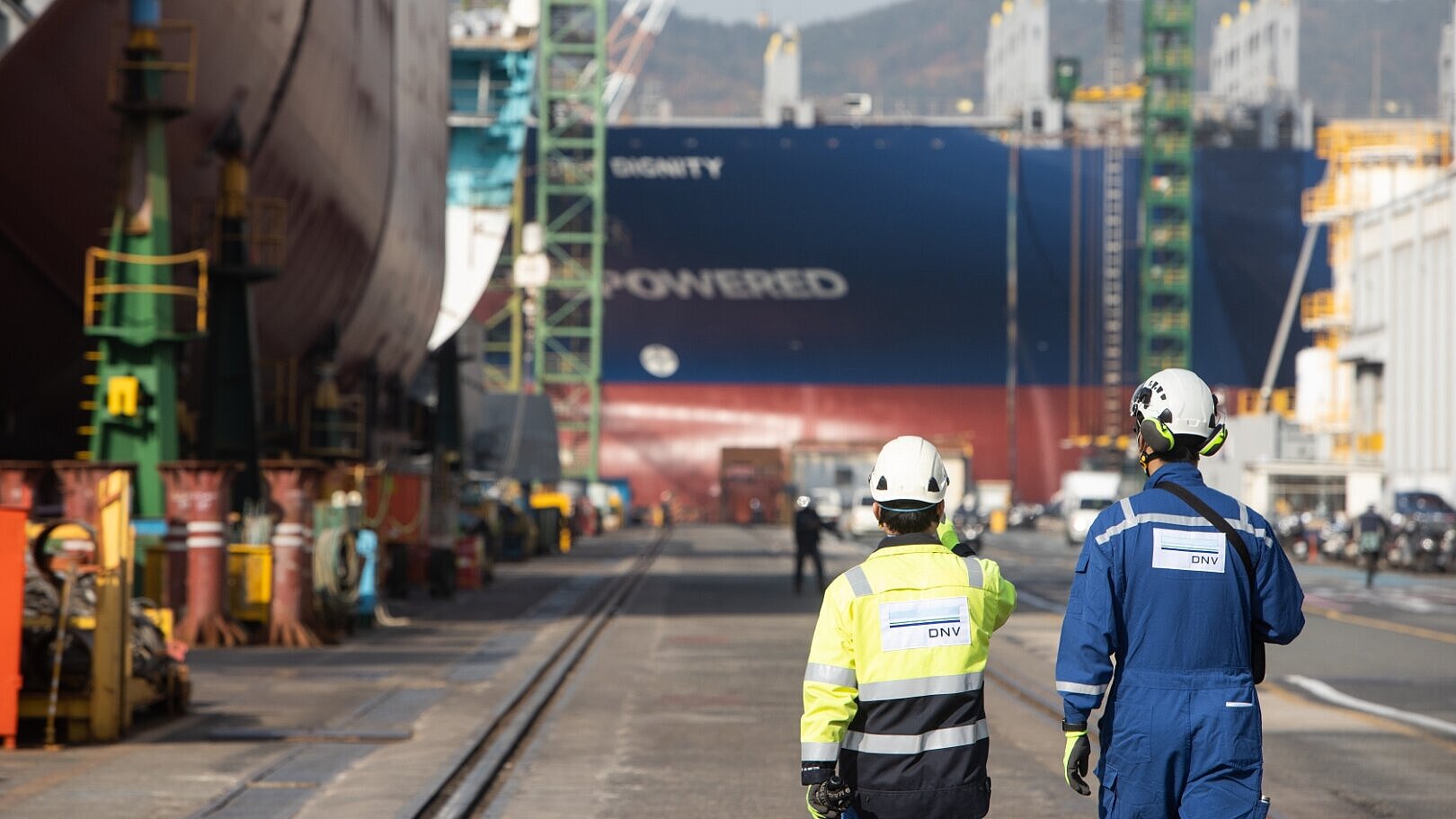
DNV launches new in-operation class notations

Classification society DNV has published updates to its rules for ships and offshore structures
(Source: DNV)
DNV has published updates to its rules for classification of ships and offshore structures. In addition to rules supporting the development and deployment of decarbonisation technologies, the new in-operation class notations seek to bring clarity to the responsibilities of class customers for notations that have a mix of design and operational requirements, the classification society said. The new notation clearly shows the split of responsibilities between shipyards engaged in construction, and owners and operators who subsequently manage assets in service, it added.
As part of the new rules, DNV is introducing two new class notations, gas fuelled hydrogen and onboard carbon capture and storage (OCCS).
Although hydrogen is a potential zero-carbon fuel for shipping, it is not yet covered by international regulations. The gas fuelled hydrogen notation sets out requirements for fuel systems, fuel bunkering connections, and energy consumers.
The first OCCS systems have already been installed and provide a new technology for reducing emissions. The OCCS notation offers a framework for these new systems’ requirements including exhaust pre-treatment, absorption, after-treatment systems, liquefaction, CO2 storage, and transfer ashore.
The new rules include new boil-off gas notation, live-fish notation, pontoon stability in heavy-lift operations, new EV notation for additional safety systems on board vehicle carriers, and revised rules and standards for diving systems aligned with the IMO’s 2023 Diving Code.
DNV Maritime’s global technical director, Geir Dugstad, commented: “One of the most striking aspects of the maritime industry today is the huge diversity of challenges and opportunities where our customers are looking for classification support. It’s not just new fuels, but ways for owners and managers to demonstrate their own efficiencies, new vessel types to unlock new markets, through to advanced technologies like onboard carbon capture.”
The new rules will enter force on January 1st, 2025.
